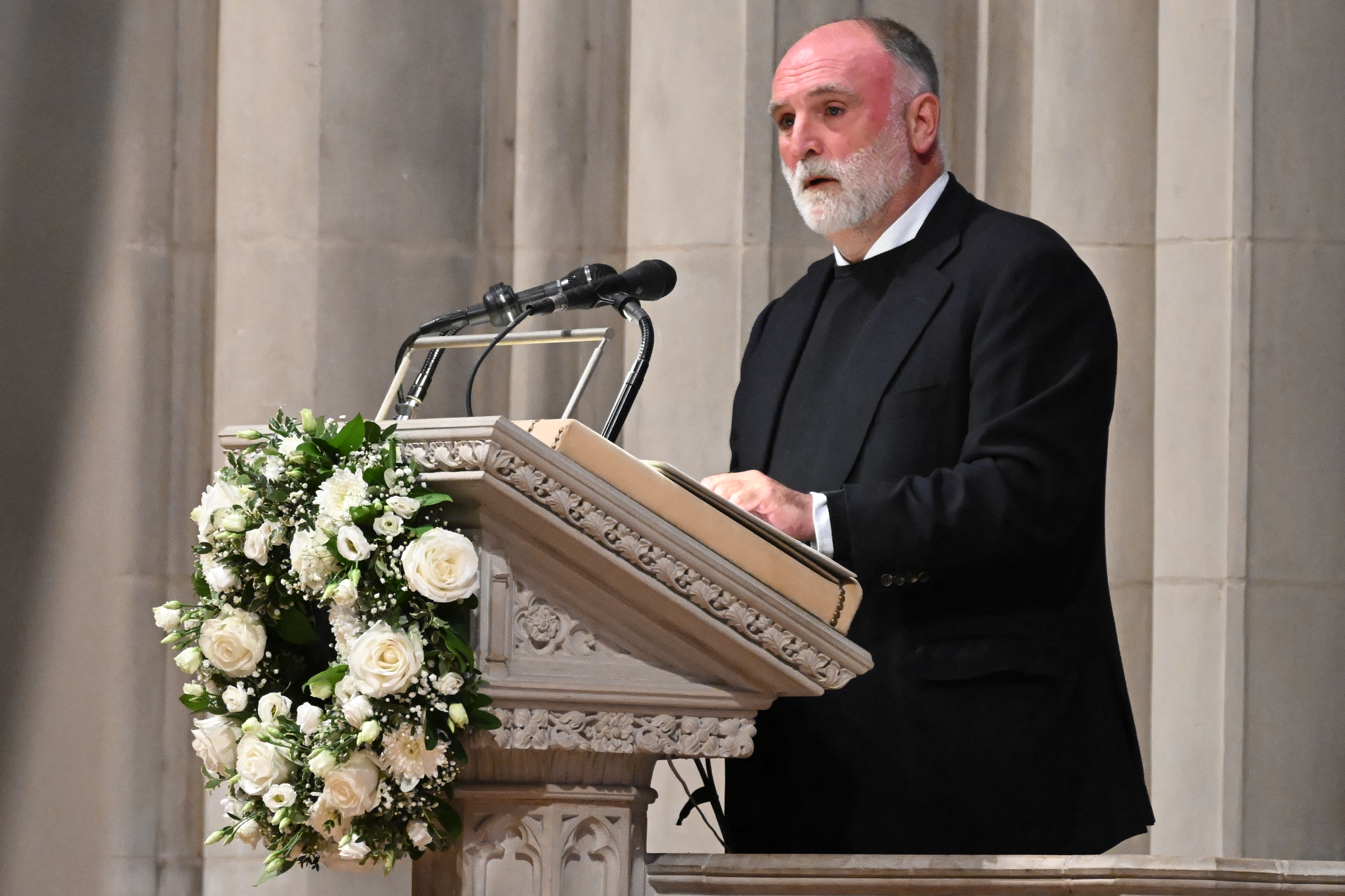Presidents Donald Trump and Vladimir Putin discussed on Friday a pair of Russian diplomatic compounds that the U.S. seized last year, according to a top Russian official, but left their first meeting without a deal that Moscow has put high on its wish list from the new American administration.
After their more than two-hour meeting, Putin's top diplomat told reporters the fate of the compounds was raised. Foreign Minister Sergey Lavrov said Russia is still seeking "justice."
American officials didn't say if the subject came up. Secretary of State Rex Tillerson didn't answer a question about whether Russia might get the so-called dachas in Maryland and New York back.
A month after Trump's election victory, President Barack Obama seized the Cold War-era recreational estates and expelled 35 Russian officials. The actions were a response to claims by U.S. intelligence agencies that Russia meddled in the presidential election to help Trump. Obama said the sites were being used for espionage.
Russia has been threatening retaliation. It argues the facilities had diplomatic immunity and says their seizure violated a 56-year-old treaty governing diplomatic relations. Resolving the dispute has been touted as a possible way to start repairing a relationship wracked by the election interference allegations and U.S.-Russian disagreements over Syria's civil war and Ukraine's separatist violence.
Officials say talks in May broached the possibility of a trade, with U.S. demands including an end to Russian harassment of American diplomats in the country and allowing the U.S. to break ground on a new consulate in St. Petersburg, Russia's second-largest city.
Washington also hopes Moscow will restart a program allowing U.S. citizens to adopt Russian children after a four-year halt, according to officials who weren't authorized to speak publicly on the negotiations and demanded anonymity.
Local
Washington, D.C., Maryland and Virginia local news, events and information
Officials in some parts of the U.S. intelligence community don't want the properties returned under any circumstances.
A senior congressional aide with knowledge of events last year said the expulsion of the Russian diplomats had nothing to do with election tampering. The aide also said the Russian compound in Maryland is located close enough to sensitive U.S. locations, including the Naval Air Station Patuxent River, to pose an espionage threat, and offers a good line of sight to the National Security Agency at Fort Meade across the Chesapeake Bay.
The Obama administration in December needed a list of actions it could take to retaliate against Russia for interfering with the election, and closing the compounds had been ``on the list for a long, long time,'' said the aide, who wasn't authorized to speak about the subject publicly and demanded anonymity.
A former senior U.S. intelligence official said the FBI and intelligence agencies for decades wanted to kick the Russians out of the properties because they believed used surveillance work was occurring there. Obama's decision to close them was a ``pretty big deal for us because it was something that we'd been asking'' for, said the official, who requested anonymity to discuss the sensitive issue.
The FBI on Thursday wouldn't give its position on restoring Russian access to the properties.
America's spy agencies are providing intelligence to policymakers weighing the future of the compounds, said a U.S. official who wasn't authorized to discuss the matter and demanded anonymity.
A bipartisan trio of senators on the Foreign Relations Committee sent Trump a letter Thursday asking him not to give the dachas back to Russia. The letter, signed by Sens. Marco Rubio, R-Fla., Jeanne Shaheen, D-N.H., and Johnny Isakson, R-Ga., said, ``The return of these two facilities to Russia while the Kremlin refuses to address its influence campaign against the United States would embolden President Vladimir Putin and invite a dangerous escalation in the Kremlin's destabilizing actions against democracies worldwide.''
The 45-acre Maryland retreat in Centreville has a brick mansion and cottages along the Corsica River. The former Soviet Union bought the compound in 1972 as a getaway for diplomats posted in nearby Washington.
The New York mansion is on Long Island's Gold Coast. The estate, once called Elmcroft, is in the town of Oyster Bay. The Soviets purchased it in 1952.
A 1989 report published by Australian National University's Desmond Ball said the Maryland facility, known as Pioneer Point, was geographically situated for collecting signals intelligence. The report, provided by The National Security Archive at George Washington University, quoted from interviews with Arkady Shevchenko, a Soviet defector, and U.S. Navy sources.
``The Eastern Shore property happens to be in the main microwave transmission corridor between Norfolk, Virginia, hub of the U.S. Atlantic Fleet operations, and the Air Force's major base at Langley Field and Washington,'' the report said.
``Several microwave relay links between Washington and Norfolk pass directly over the Soviet antennae.''
While Washington and Moscow clash over graver matters, such as their support for rival sides in Syria's six-year conflict between the government and rebels, the return of the compounds where Russian diplomats had gone for decades to play tennis, sail and swim has been a prominent Kremlin demand since Trump entered office. Top U.S. and Russian officials have described the impasse over the estates as an ``irritant'' that if resolved could provide a basis for progress on weightier disputes.
On Monday, Putin's foreign affairs adviser, Yuri Ushakov, said if the U.S. doesn't soon give back the compounds, Moscow will have no choice but to retaliate. Senior Russian officials have issued several such threats previously.



